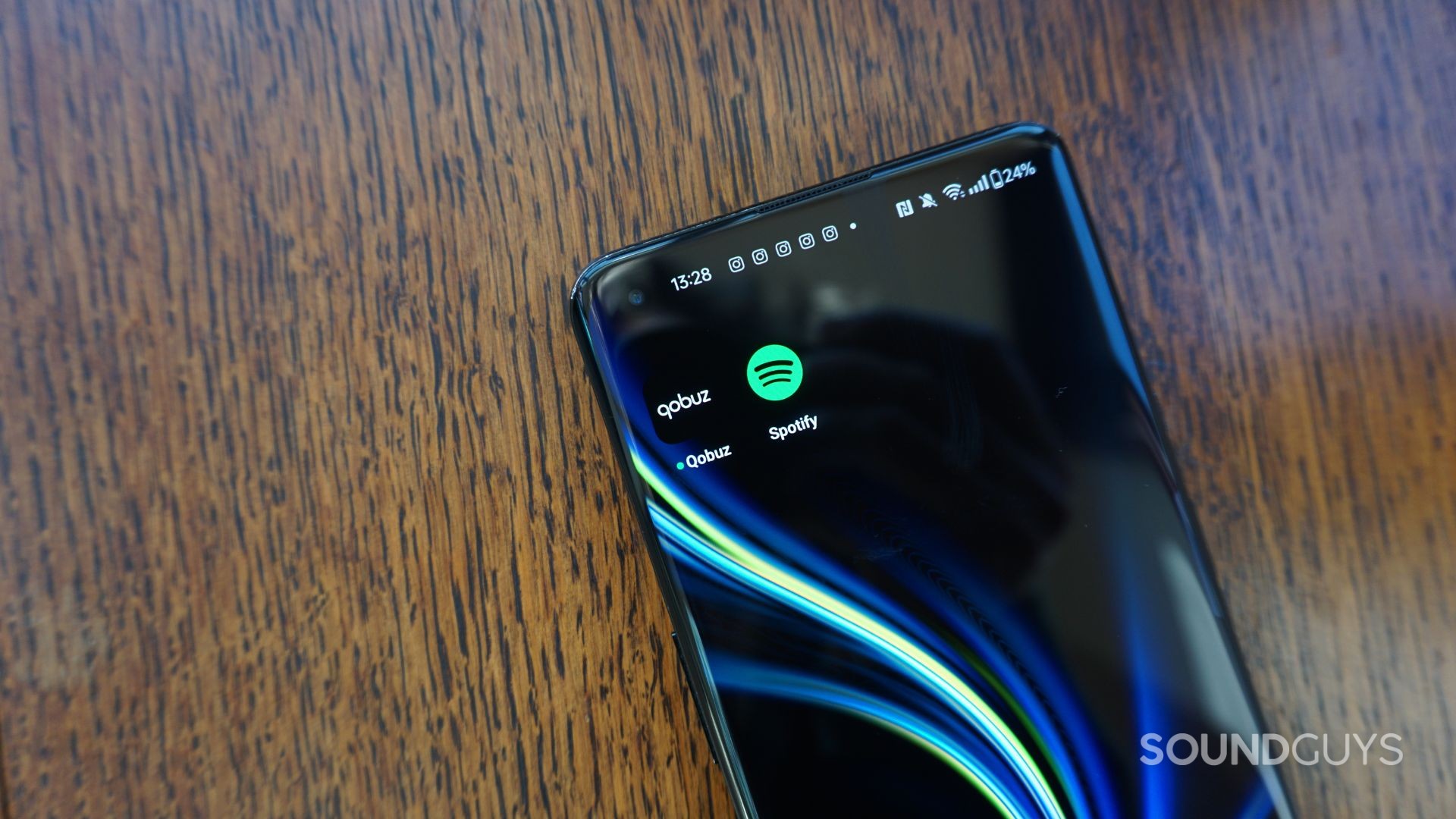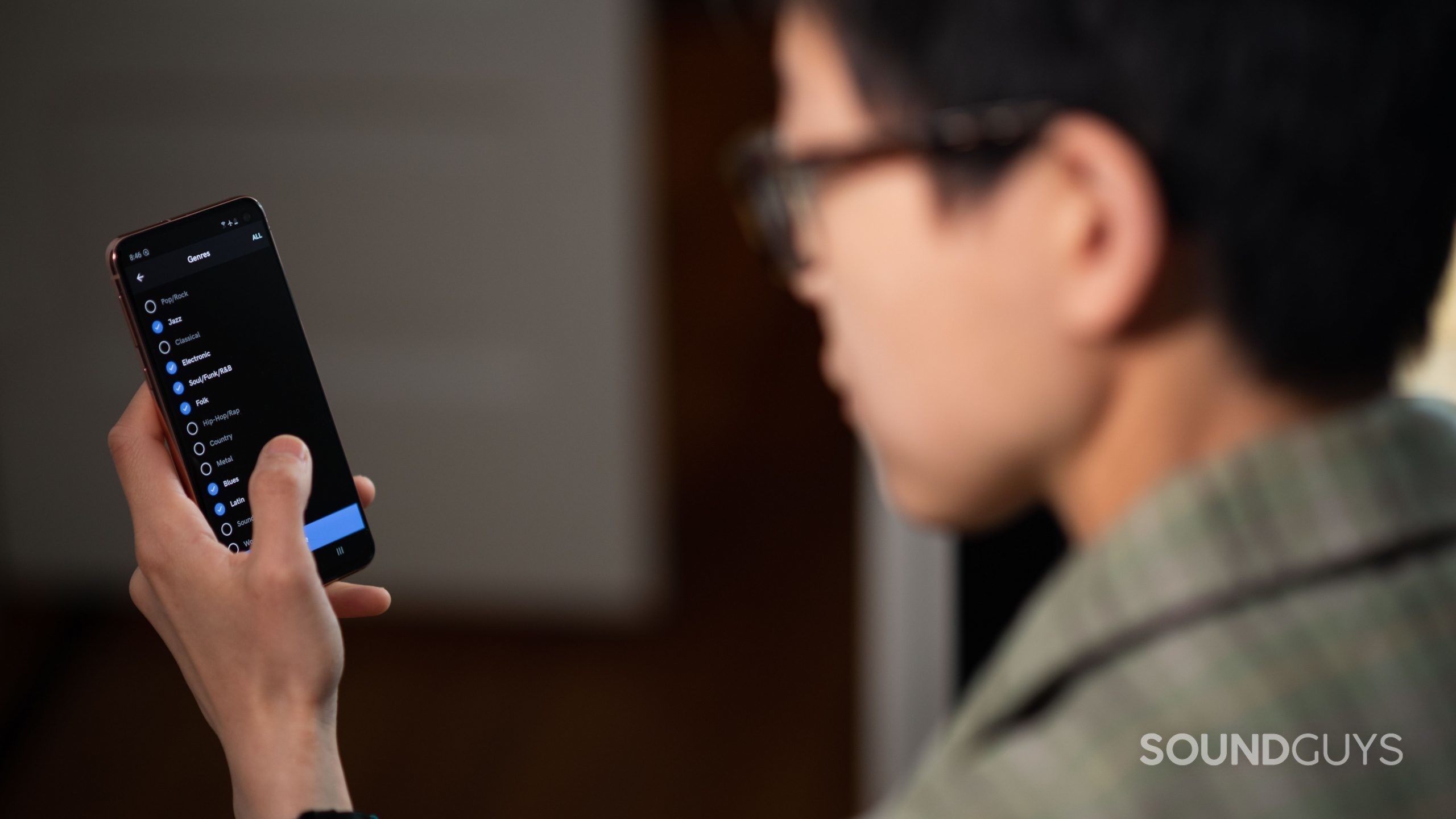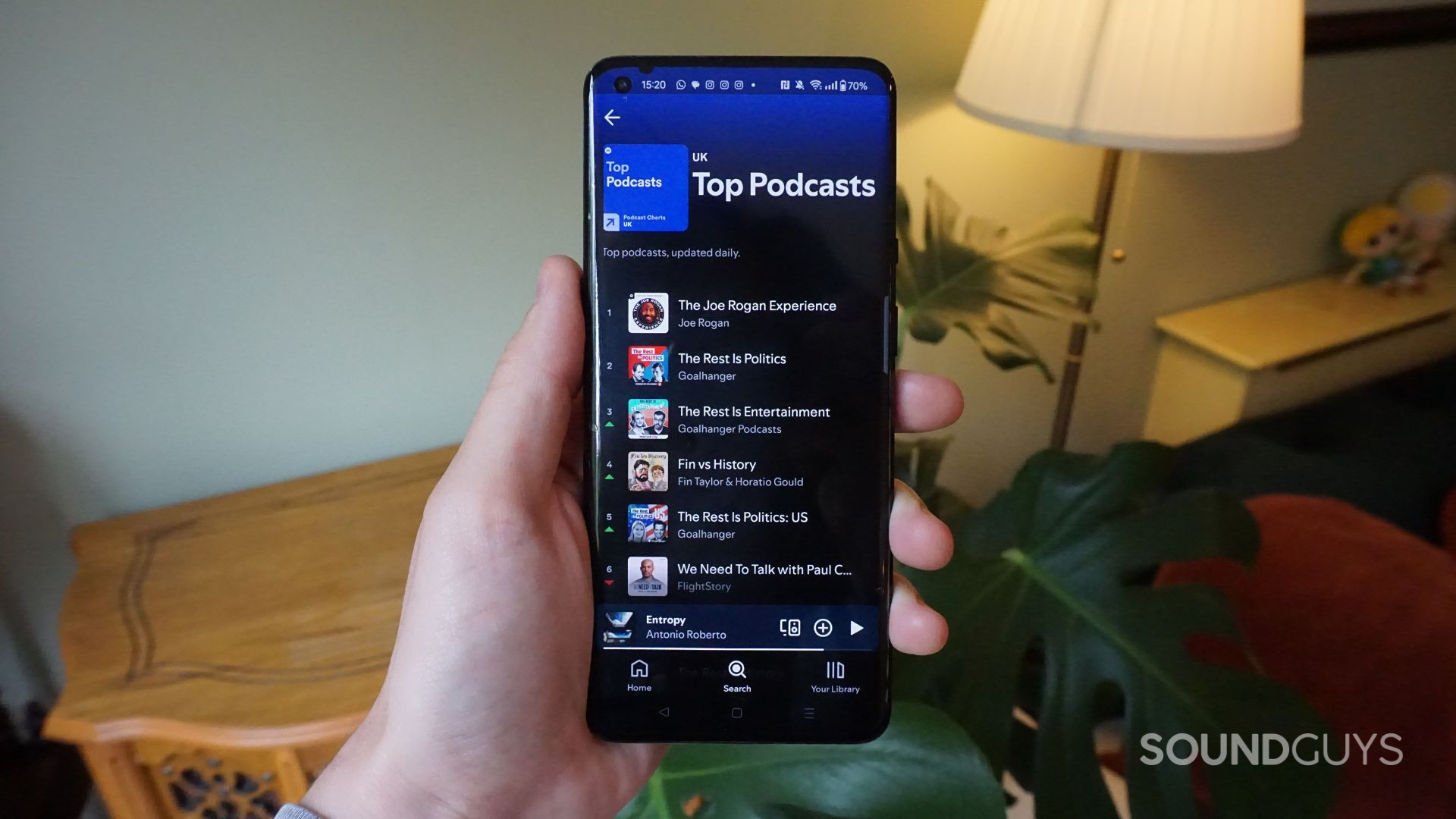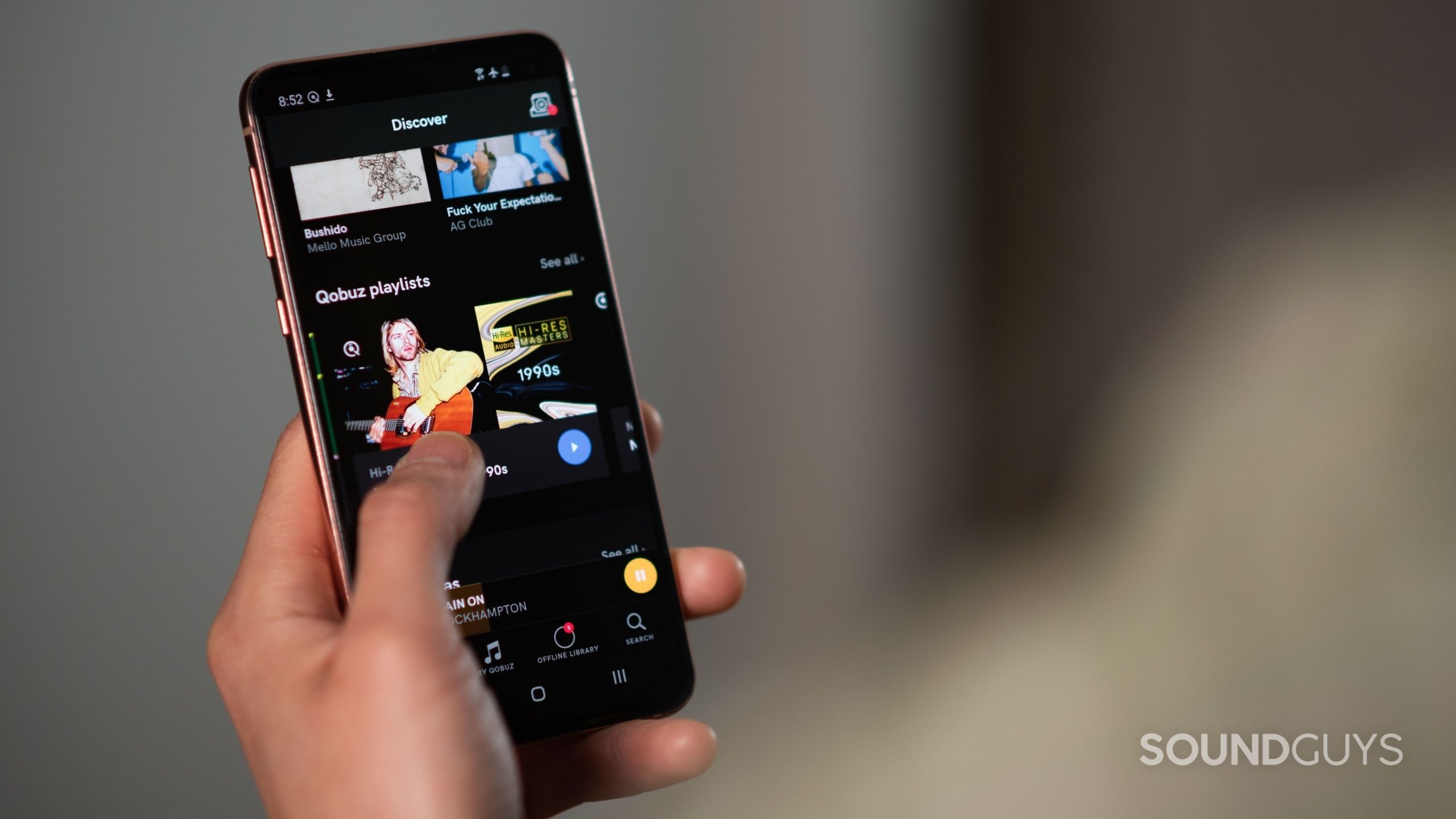All products featured are independently chosen by us. However, SoundGuys may receive a commission on orders placed through its retail links. See our ethics statement.
Qobuz's Dan Mackta discusses Spotify Lossless and the future of Hi-Res streaming
November 5, 2025

The ways we view and consume music have changed drastically over the years. Once a precious vessel for artistic expression and a treasured commodity among fans, music is now often associated with today’s societal throwaway culture. Many lay the blame at the doorstep of major music streaming services for oversaturating the market and algorithmizing art. To get the inside scoop, I recently had the pleasure of sitting down with Qobuz’s Managing Director, Dan Mackta. Together, we discussed the launch of Spotify Lossless, what it means for Qobuz and the wider industry, and his view on the future direction of Hi-Res music streaming.
From humble beginnings to cult followings

Qobuz launched in France in 2007, bringing CD-quality downloads and streaming to a new and burgeoning market. Spotify had yet to materialize, and its main competitors were Napster, Rhapsody, and Deezer. It was precisely Qobuz’s (legal) lossless offering that helped it to stand out, and it officially launched in the UK in 2018. However, as Dan puts it, nobody was really that interested in Hi-Res streaming on a major scale before then. Instead, the rise of Tidal in the US and the emergence of Apple Music and Amazon Music as major players quickly shifted the focus to 24-bit audio.
A lot has changed since. According to a recent study by Digital Music News, Spotify, Apple, and Amazon Music account for 90% of the total US music streaming market share so far in 2025. I put this to Dan, questioning how this affects Qobuz and its effort to provide a unique service. He told me that he often attends music festivals, such as We Out Here in the UK, and speaks to musos. This reinforces what he already knows — that there is a particular appetite for music streaming services that cater to active listeners. While this fanbase may be smaller than those who consume music in the background, Qobuz has successfully built a cult following of album-centric, record-store-style enthusiasts.
One-third of Qobuz's business comes from paid downloads in certain territories.
Dan reiterates that Qobuz is still a comparatively small operation. For example, the company has a global workforce of just 100 employees. This includes the editorial team, which is the heartbeat of the company’s modus operandi. Looking forward, Dan states that Qobuz wants to secure 1% of the US market share and become a profitable business. He is particularly passionate about Qobuz’s status as a privately owned, music-only company.
I mention that physical sales have made a comeback in recent years, especially here in the UK. I ask Dan how this has affected the Qobuz digital store. He replies that “it’s in the DNA of Qobuz to offer a Hi-Res download store”. To his credit, Qobuz has made its entire music catalog available to download in lossless format in the US and UK. Dan believes people have realized that purchasing music outright puts more money in artists’ pockets. Similarly, he comments that most DJs rely on physical media or USB files for their work. This may go some way to explaining why one-third of Qobuz’s business comes from paid downloads in certain territories.
The big fish just got bigger

By contrast, Spotify has thousands of employees and recently reported a 10% increase in total revenues to €4.2 billion (~$4.8 billion) in Q2 of 2025. According to Forbes magazine, Spotify’s CEO and cofounder, Daniel Ek, has a net worth of $9.4 billion as of November 3rd, 2025. As the 345th richest person in the world, Daniel Ek has increased his personal fortune by $5.2 billion (~123%) since 2024. For reference, his current net worth is more than the combined total of Taylor Swift, Rihanna, and Jay-Z — three of the highest performing artists on his platform.
Spotify’s Q2 2025 earnings report also reveals that its subscriber count rose year over year by 12% to 276 million. Monthly active users also increased by 11% to 696 million, and the company’s gross margin grew to 31.5%. This is in addition to new features such as AI Playlist, Spotify DJ, and Creative Lab Hub. However, Spotify Lossless is arguably the platform’s most noteworthy update since its debut in over 50 territories throughout October 2025. This unlocks 24-bit/44.1 kHz FLAC audio streaming for over 100 million tracks and, given Spotify’s popularity, encroaches on Qobuz’s cherished turf.
Spotify Lossless has helped Qobuz's brand awareness.
Dan Mackta mentions that Qobuz had been anticipating Spotify Lossless for a long time. While Qobuz saw modest cancellations in the months after Spotify Lossless launched, its user base has since grown. If anything, Dan says the release of Spotify Lossless has helped with Qobuz’s brand awareness. In his own words, “it woke up a lot of people to the idea that what they’d been listening to had been s*** for so long”. He goes on to say that the company’s numbers are looking healthy, particularly in the US and the UK.
I ask Dan where he sees the future of Hi-Res streaming going now that Spotify has entered the arena. He envisions that super high-quality audio equipment from companies like WiiM will become the industry standard in a few years. Specifically, he believes that WIFI headphones and more affordable wireless audio technologies will democratize the market. This is in addition to improved cellular data capabilities and nominal costs in accessing large files. Dan also notes his own experiences seeing labels and rights-holders remaster old music catalogs in higher-quality audio formats.
Why I’m still choosing Qobuz over Spotify

There are other reasons why many, including myself, have stepped away from Spotify in recent years. Firstly, many praise Qobuz for its industry-leading royalty payouts. This is calculated on the same pro-rata system as Spotify. Consequently, it is actually Qobuz’s smaller market share that contributes to higher artist payments. Dan admits this, stating that the company invited accounting auditors to calculate the total royalties paid compared to the total number of streams. Given that Qobuz has fewer listeners than Spotify overall, it pays out a larger average percentage per stream. So long as the company remains smaller than Spotify, it will continue to pay out a higher “per-stream” rate. A classic example of the “support small business” mantra, if you will.
Secondly, Qobuz is constantly looking for ways to cater to hardcore music lovers with special offerings. I asked Dan what was in the pipeline that fans can be excited about. He mentioned that the company wants to host more events like the Brick Lane Jazz Festival and offer accompanying compilation albums. In addition to exclusive sessions and content, Qobuz is also talking to archivists about digging up old recordings to be remastered and restored. It also plans to upgrade all of its apps to include “Label Pages”. These provide label bios, catalog spotlights, and follow features for discovering artists and new releases. The Qobuz app will also be available in the car, on a watch, and on the TV in the future.
Qobuz wants lyric integration, but resources are limited.
I asked Dan whether, given Spotify’s success, Qobuz could adopt e-commerce integration. He stated that, because resources are limited, Qobuz is predominantly focused on delivering the best service for music freaks. The company is working on technical connections through the Qobuz Connect feature. However, we’re unlikely to see lyrics or Shopify integration soon. Similarly, I asked Dan whether Qobuz will ever offer podcasts. He insisted that, if it did, it would only support the best-of-the-best, music-only podcasts. At present, the company is razor-focused on its editorial offerings and Qobuz Club community.
I could have spoken to Dan Mackta for hours, but sadly, our conversation came to an end. Thirty minutes wasn’t nearly enough, but it reinvigorated my feeling that Qobuz’s approach is more harmonious with musical value and intent than Spotify. As Ethical Consumer Magazine recently put it, Spotify has actively driven standards down in the sector. While its CEO and co-founder is embroiled in AI weaponry controversy and the platform crams popular playlists with low-cost stock music and ghost artists, Qobuz is forging its own, fan-first path without the noise. If music streaming is ever going to be ethical, Qobuz is surely at the forefront.
But what do you think? Do Dan Mackta’s views of Spotify Lossless and Hi-Res streaming align with yours, or are there superior alternatives? Let us know in the poll and comments section below!
Do you prefer Qobuz or Spotify?
Thank you for being part of our community. Read our Comment Policy before posting.